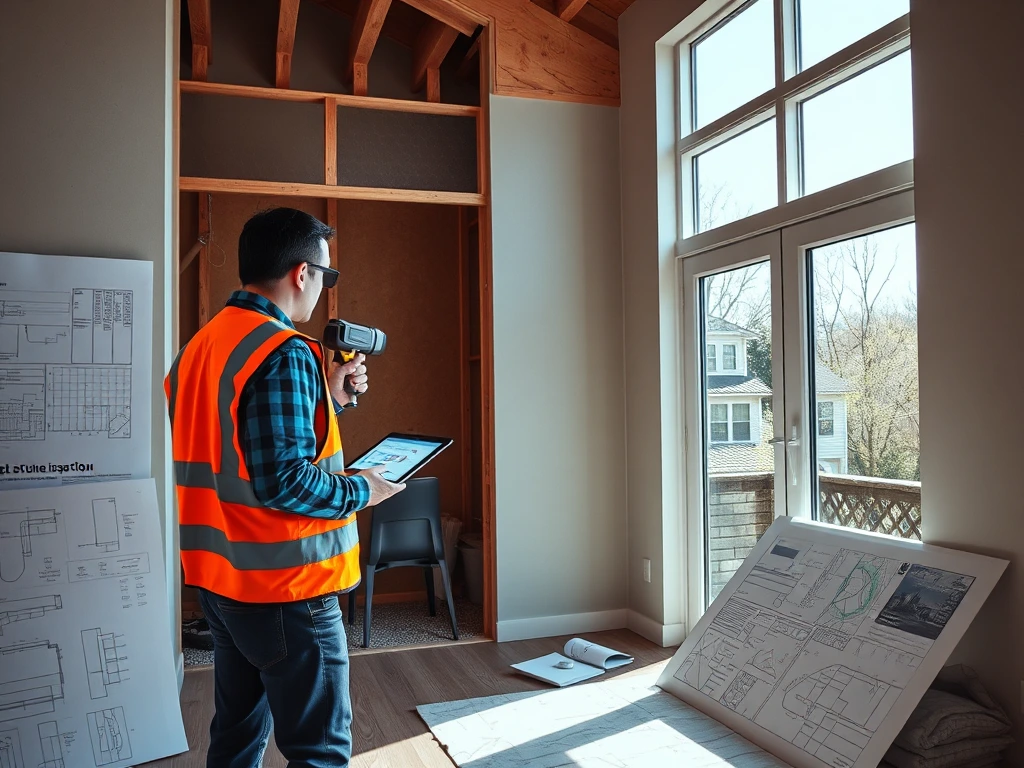What if one overlooked detail could unravel your entire real estate investment dream? The landscape of wealth-building is changing, but one truth remains unshaken: real estate investment is a powerful engine for financial growth. As we navigate 2025, the game has evolved. It’s no longer just about buying property; it’s about buying the right property with surgical precision. This year offers unprecedented opportunities, fueled by technology and new market dynamics. Yet, the path is littered with hidden traps that can turn a promising venture into a costly nightmare. This guide is your strategic ally. We will dissect the critical pitfalls and arm you with expert strategies. You will learn how to build a resilient and profitable portfolio with confidence and foresight.
The 2025 Investor’s Playground: Trends Reshaping Real Estate
The real estate investment world is not what it was five years ago. Economic recalibrations and technological leaps have redrawn the map. Artificial Intelligence now powers predictive analytics, offering insights into neighborhood appreciation and rental yields that were once guesswork. Virtual reality tours are standard, allowing you to vet a property in another state—or country—with stunning clarity. This tech-driven efficiency is creating smarter, faster-moving markets.
However, this ease of access has a flip side. It can create a false sense of security. The core principles of due diligence remain paramount. The most beautiful virtual tour can hide a crumbling foundation. A compelling AI-generated report cannot smell the mold in a basement. In 2025, the successful investor blends high-tech tools with old-school, on-the-ground verification. They understand that the biggest opportunities lie at the intersection of data and diligent physical inspection.
Psychological Insight: The “FOMO” (Fear Of Missing Out) is potent in a fast market. This often leads to rushed decisions and skipped steps. The most successful investors cultivate a discipline of patience. They have a checklist and refuse to deviate from it, no matter how enticing the deal appears.
Pitfall #1: The Allure of Aesthetics – Ignoring Hidden Defects
You step into a property. It’s flawless. Fresh paint, gleaming hardwood, and a modern kitchen that looks straight out of a magazine. It’s easy to be seduced. This is the most common trap for new investors. They focus on surface-level appeal while multi-family property veterans look deeper. What lies behind those beautiful walls?
What to Look For:
- Plumbing: Water pressure issues, slow drains, or discolored water can signal larger problems.
- Electrical: Flickering lights, outdated fuse boxes, and a lack of GFCI outlets in wet areas are major red flags.
- Pest Infestation: Look for subtle signs like droppings, mud tubes for termites, or damaged wood.
Pro Tip: Never, ever skip the professional inspection. Use it as a negotiating tool. A $500 inspection that reveals $5,000 in necessary repairs gives you immense power to either renegotiate the price or walk away.
Personal Experience & Social Proof: I once bought a charming duplex that seemed perfect. The inspection, however, revealed outdated aluminum wiring—a significant fire hazard. The repair cost was over $12,000. By having this information, I negotiated a $10,000 price reduction, saving my portfolio from an unexpected financial hit.
Action Step: Hire a certified inspector and consider specialized tests for pests, radon, and mold. Their detailed report is your first line of defense.
Pitfall #2: The Silent Killer – Overlooking Foundation Flaws
The foundation is the literal backbone of your investment. A crack here isn’t just a cosmetic issue; it’s a threat to the entire structure. Ignoring it is like building a castle on sand.
Signs of Foundation Issues:
- Diagonal cracks running from door frames or windows.
- Doors and windows that stick or won’t close properly.
- Uneven or sloping floors (roll a marble to test).
Pro Tip: A general inspector might note a crack, but a structural engineer can diagnose its cause and severity. Their fee is a minor investment compared to the cost of a foundation repair.
Action Step: If you see any red flags, make your offer contingent on a foundation specialist’s report. This is non-negotiable for long-term property appreciation.
Pitfall #3: The Overhead Disaster – Underestimating Roofing Issues
A damaged roof is a leak waiting to happen. Water intrusion leads to mold, rot, and destroyed interiors. A full roof replacement is one of the most expensive repairs a property owner can face.
How to Inspect the Roof:
- From the ground, look for cracked, curling, or missing shingles.
- Inside the attic, look for stains, daylight peeking through, or signs of moisture.
- Check gutters for an excessive amount of granules, which signals shingle wear.
Pro Tip: For multi-story or complex roofs, drone technology is a game-changer. Many inspection companies now offer drone services for a safe, thorough aerial assessment.
Personal Experience: A rental property I acquired had a roof that was “at the end of its lifespan,” according to the inspector. I budgeted for a replacement in two years. A severe storm forced my hand in six months, costing $18,000. I learned to always factor in immediate replacement costs if the roof is aged.
Action Step: Get a specific roof inspection and ask for an estimated remaining lifespan. This allows for accurate budgeting and prevents tenant disputes over leaks.
Pitfall #4: Legal Quicksand – Neglecting Title and Zoning
You can find the perfect property, negotiate a great price, and have the inspection go smoothly—only to have it all halted by a legal issue. Title and zoning problems are silent deal-killers.
What to Look For:
- Title Issues: Liens from contractors or the IRS, ownership disputes, or unresolved inheritance claims.
- Zoning Violations: Unpermitted additions, running a business from a residentially-zoned property, or future city plans that could affect value.
Pro Tip: Title insurance is essential, but a real estate attorney is your best advocate. They can navigate complex local laws and ensure the title is truly clear.
Action Step: Work with a reputable title company and hire a local real estate attorney to review all documents. For multi-family property investments, this is doubly important.
Pitfall #5: The Unstable Seller – A Closing Day Crisis
The seller’s financial stability directly impacts your ability to close smoothly. A seller in distress—facing foreclosure, bankruptcy, or divorce—can create unpredictable delays and complications.
Signs of Potential Issues:
- The seller is evasive or pressured for an unusually fast closing.
- The property is listed as a “short sale” or “bank-owned.”
- Public records reveal recent liens or bankruptcy filings.
Pro Tip: Your real estate agent can often gauge a seller’s situation. In complex cases, direct communication between attorneys is key to managing expectations and timelines.
Action Step: Conduct discreet due diligence on the seller’s motivation. If it’s a distressed sale, ensure your contract has flexible closing dates and involves a skilled attorney.
Leveraging Technology: Your 2025 Investment Co-Pilot
Why fly blind when you have an instrument panel? Technology in 2025 is not a luxury; it’s a core component of a winning real estate investment strategy.
Comparison Table: Traditional vs. Tech-Enabled Investing
| Aspect | Traditional Method (Risky) | 2025 Tech-Enabled Method (Smart) |
|---|---|---|
| Property Analysis | Gut feeling, drive-by looks | AI-driven platforms analyzing rental yields, school scores, and crime data |
| Property Viewing | In-person only, time-consuming | Virtual tours and drone footage for remote, efficient vetting |
| Market Research | Reading generic market reports | Big data analytics predicting neighborhood growth and property appreciation |
| Tenant Screening | Basic credit check | Comprehensive online background checks and income verification |
Action Step: Integrate at least two tech tools into your process. Use a platform like Roofstock or Mashvisor for data analysis and a service like Matterport for virtual tours.
Your Blueprint for Success: How to Start Building Today
Feeling overwhelmed? Don’t be. Every expert was once a beginner. The key is to take structured, informed action. Here’s how you can start your real estate investment journey and win in 2025.
- Educate Yourself Relentlessly. The market evolves constantly. Read books, follow reputable blogs, and listen to podcasts from successful investors.
- Define Your Niche. Are you interested in single-family rentals, a multi-family property, or commercial real estate? Each has different strategies.
- Build Your Professional Team. Your team is your foundation. Find a knowledgeable agent, a reliable inspector, a savvy attorney, and a supportive lender.
- Crunch the Numbers. Don’t guess. Calculate all costs—purchase price, repairs, taxes, insurance, and maintenance. Your goal is positive cash flow from day one.
- Start with a Single Step. You don’t need to buy a 50-unit apartment complex. A modest single-family rental can be the perfect launchpad for your portfolio.
Conclusion: Your Wealth Awaits
Real estate investment in 2025 is a thrilling, accessible, and profoundly rewarding journey. It offers what many other investments cannot: tangible asset ownership, control over your returns, and a proven path to long-term wealth. The pitfalls are real, but they are entirely avoidable. You now possess the knowledge to spot them before they spot you.
By embracing technology, conducting ruthless due diligence, and building a expert team, you position yourself for success. You are not just buying property; you are buying cash flow, financial freedom, and a legacy.
The question is no longer if you should invest, but when you will start. The market is moving. Your future portfolio is waiting to be built. Take that first step today.



